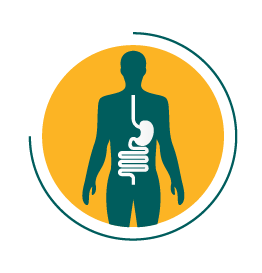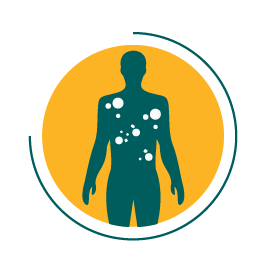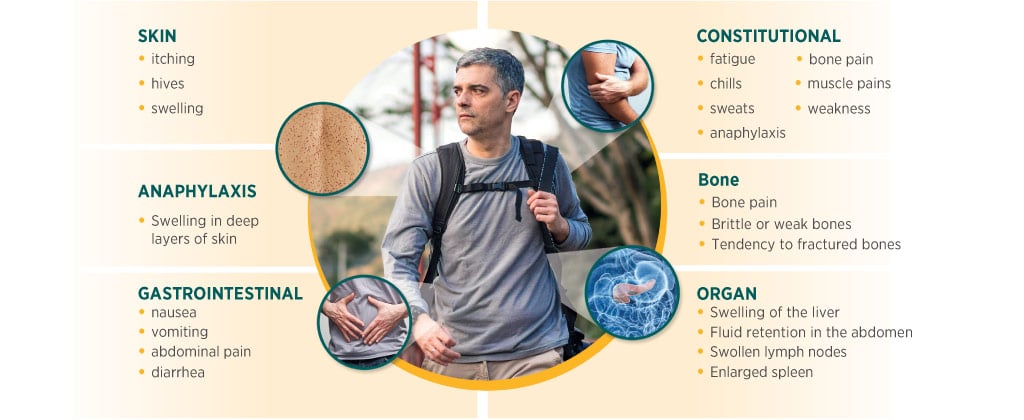See if RYDAPT® (midostaurin) capsules may be right for you.
Signs & Symptoms
Three Types of Systemic Mastocytosis (SM)
Systemic Mastocytosis affects the whole body
Advanced systemic mastocytosis (SM)* is a systemic disease, which means that it affects the whole body. Many of the symptoms can seem unrelated and, at first, they can be difficult to diagnose correctly.
*Aggressive systemic mastocytosis (ASM), systemic mastocytosis with associated hematological neoplasm (SM-AHN), or mast cell leukemia (MCL) are 3 types of SM and are collectively referred to as advanced SM.
What are some of the most common signs and symptoms of advanced SM?

More than half of patients with advanced SM have certain gastrointestinal (GI) symptoms. These symptoms may include stomach cramps, diarrhea, heartburn, nausea, and vomiting

About half of patients with advanced SM have skin problems that may seem like an allergic reaction. These symptoms may include flushing (redness), hives, and rash
Not all patients will experience all the signs and symptoms.
What are some of the most serious signs and symptoms of advanced SM?
Some patients with advanced SM have symptoms that may seem like a more serious allergic reaction. A less common but more severe symptom is anaphylaxis. This is when your blood pressure drops suddenly and your airways narrow, making it hard to breathe. You should contact your doctor right away if this happens to you.

Patients may also feel pain throughout the body, and they may feel weak and tired.
If advanced SM goes untreated, it can begin to affect your organs. Always tell your doctor if symptoms change or worsen.

